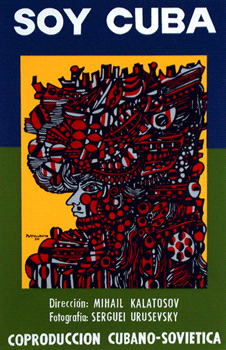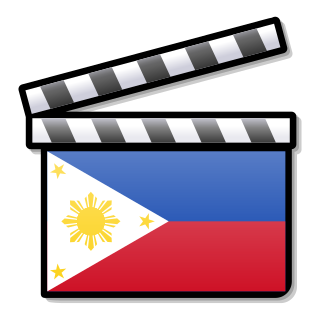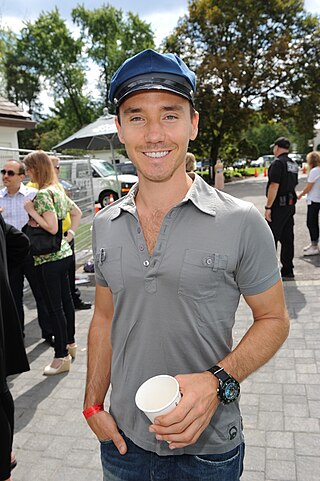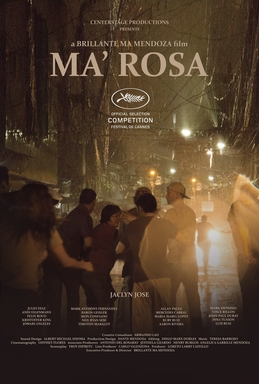Related Research Articles

I Am Cuba is a 1964 film directed by Mikhail Kalatozov at Mosfilm. An international co-production between the Soviet Union and Cuba, it is an anthology film mixing political drama and propaganda.

Catalino Ortiz Brocka was a Filipino film director. He is widely regarded as one of the most influential and significant filmmakers in the history of Philippine cinema. His filmography often addressed the country's societal issues, and despite his initial closeness with the Marcos family, his work eventually grew to have anti-authoritarian themes in opposition to the Marcos dictatorship.

The International Documentary Film Festival Amsterdam (IDFA) is the world's largest documentary film festival held annually since 1988 in Amsterdam, Netherlands.
Tomás Gutiérrez Alea was a Cuban film director and screenwriter. Gutiérrez Alea wrote and directed more than twenty features, documentaries, and short films, which are known for his sharp insight into post-Revolutionary Cuba, and possess a delicate balance between dedication to the revolution and criticism of the social, economic, and political conditions of the country.

The Revolution Will Not Be Televised, also known as Chávez: Inside the Coup, is a 2003 Irish documentary film. It focuses on events in Venezuela leading up to and during the April 2002 coup d'état attempt, which saw President Hugo Chávez removed from office for two days. With particular emphasis on the role played by Venezuela's private media, the film examines several key incidents: the protest march and subsequent violence that provided the impetus for Chávez's ousting; the opposition's formation of an interim government headed by business leader Pedro Carmona; and the Carmona administration's collapse, which paved the way for Chávez's return. The Revolution Will Not Be Televised was directed by Irish filmmakers Kim Bartley and Donnacha Ó Briain. Given direct access to Chávez, the filmmakers intended to make a fly-on-the-wall biography of the president. They spent seven months filming in Venezuela, following Chávez and his staff and interviewing ordinary citizens. As the coup unfolded on 11 April, Bartley and Ó Briain filmed on the streets of the capital, Caracas, capturing footage of protesters and the erupting violence. Later, they filmed many of the political upheavals inside Miraflores, the presidential palace.

Saul Landau was an American journalist, filmmaker and commentator. He was also a professor emeritus at California State Polytechnic University, Pomona, where he taught history and digital media.

Eric Oteyza de Guia, better known as Kidlat Tahimik, is a film director, writer and actor whose films are commonly associated with the Third Cinema movement through their critiques of neocolonialism. For his contributions to the development of Philippine independent cinema, he was recognized in 2018 as a National Artist of the Philippines for Film - a conferment which represents the Philippine state's highest recognition for artists.

Cinema of Africa covers both the history and present of the making or screening of films on the African continent, and also refers to the persons involved in this form of audiovisual culture. It dates back to the early 20th century, when film reels were the primary cinematic technology in use. As there are more than 50 countries with audiovisual traditions, there is no one single 'African cinema'. Both historically and culturally, there are major regional differences between North African and sub-Saharan cinemas, and between the cinemas of different countries.

The Cinema of the Philippines began with the introduction of the first moving pictures to the country on August 31, 1897, at the Salón de Pertierra in Manila. The following year, local scenes were shot on film for the first time by a Spaniard, Antonio Ramos, using the Lumiere Cinematograph. While most early filmmakers and producers in the country were mostly wealthy enterprising foreigners and expatriates, on September 12, 1919, Dalagang Bukid, a film based on a popular zarzuela, was the first movie made and shown by Filipino filmmaker José Nepomuceno. Dubbed as the "Father of Philippine Cinema," his work marked the start of cinema as an art form in the Philippines.

Jon Alpert is an American journalist and documentary filmmaker, known for his use of a cinéma vérité approach in his films.

Edgar Sinco Romero,, commonly known as Eddie Romero, was a Filipino film director, film producer and screenwriter.

Rob Stewart was a Canadian photographer, filmmaker and conservationist. He was best known for making and directing the documentary films Sharkwater and Revolution. He drowned at the age of 37 while scuba diving in Florida, filming Sharkwater Extinction.
Cynthia Wade is an American television, commercial and film director, producer and cinematographer based in New York City. She has directed documentaries on social issues including Shelter Dogs in 2003 about animal welfare and Freeheld in 2007 about LGBT rights as well as television commercials and web campaigns. She has won over 40 film festival awards, won an Oscar in 2008, and was nominated for her second Oscar in 2013.

Nettie Wild is a Canadian filmmaker with a focus on documentaries that highlight marginalized groups and discrimination that these groups face, including people in Canada and around the world. She has worked throughout her professional career as an actor, director, producer, and cameraperson.

Ma' Rosa is a 2016 Filipino drama film directed by Brillante Mendoza. It was selected to compete for the Palme d'Or at the 2016 Cannes Film Festival. At Cannes, Jaclyn Jose won the award for Best Actress. It was selected as the Filipino entry for the Best Foreign Language Film at the 89th Academy Awards but it was not nominated.
Philippine New Wave is a filmmaking term that has been popularly associated with the resurgence of independent, digital and experimental films in the Philippines began in the 21st century, and merged into a recent filmmaking period known as the Third Golden Age of Philippine cinema.

Batas Militar is a 1997 Filipino television documentary film about martial law under Ferdinand Marcos, and the ouster movement against him, the People Power Revolution. The film was directed by Jon Red and Jeannette Ifurung, with the former focusing on dramatizations and narrated by Joonee Gamboa.
Mila Turajlić is a Serbian filmmaker. She directed and produced award-winning films The Other Side of Everything and Cinema Komunisto.
Carlo Francisco Manatad is a Filipino filmmaker and editor. He is one of the most prolific editors in the Philippines and has edited the films Ruined Heart (2014), A Gentle Night (2017), Balangiga (2017) and Women of the Weeping River (2018) to name a few. As a director, his films have screened in a number of international film festivals, such as in Locarno, Toronto, Busan, and Cannes.
References
- ↑ Selincourt, Natalie (January 12, 2018). "The First Feature Documentary Shot On GoPro Heads For Theaters". Wish Machinery. Archived from the original on February 4, 2018. Retrieved November 18, 2023.
- 1 2 Cabana, Ysh (June 14, 2019). "Film Review: Revolution Selfie (2017): Stories of peasant warriors under conditions of poverty". The Philippine Reporter. Retrieved April 26, 2023.
- ↑ Lindsay, Le Anne (October 8, 2018). "Film Festival Coverage: 11th Annual Philadelphia Asian American Film Festival" . Retrieved April 26, 2023.
- ↑ "Filipinos bag 11 awards at the International Film Festival Manhattan". October 29, 2018. Retrieved April 26, 2023.
- ↑ "Revolution Selfie".
- ↑ Aguilar, Krissy (October 29, 2018). "Filipinos win big at Manhattan film fest". Inquirer.net. Retrieved November 18, 2023.
- ↑ "2019 Film Festival Winners". Inwood Film Festival. Archived from the original on November 19, 2023. Retrieved November 18, 2023.